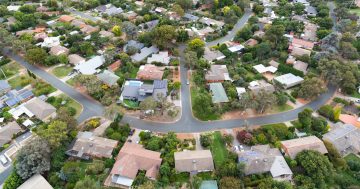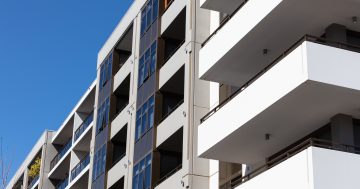
A couple on minimum wage in the ACT need to use 34 per cent of their income to cover rent. Photo: File.
This week, National Shelter has released its annual Rental Affordability Index and unfortunately, there are no surprises in this report. It has found that the ACT (and the rest of the country) continue to experience a rental affordability crisis for people on the lowest incomes.
The report details the downward trend in housing affordability in the ACT over the period from 2011.
Today, Canberra is only surpassed by Greater Sydney in the race to be the most unaffordable capital city in Australia to rent in if you are a low-income household. At a time when more people than ever are renting rather than buying their own home and when we know rents are rising, the report presents the sobering reality of what sorts of Canberra households are really struggling to keep a roof over their heads.
This annual analysis looks at the proportion of low-income households (that is, the lowest 40 per cent of households across all income bands) who have housing costs that are more than 30 per cent. It’s generally accepted if you are paying more than 30 per cent of your income on housing costs and you are on a lower income, it’s likely that you don’t have enough income to cover other essential items such as food, energy, health services, medications, travel, education, household goods and debt repayments. In considering this, it is useful to know across all households, renters are generally spending about 20 per cent of their income on housing costs. This compares to owners with a mortgage who need to use 16 per cent of their income to cover their housing costs.
One of the most useful things that this report does is provide a picture of the situation for different types of households. It profiles what housing (un)affordability means for both working and non-working people and for different types of households including single parent and dual-income families.
As was the case in previous years, the situation is particularly dire if you are on Newstart, or if you are a pensioner. If you are on Newstart, rent is more than 100 per cent of your income (115 per cent). Single pensioners don’t fare too much better, with this group of households needing to allocate 75 per cent of their regular income to cover the rent. Pensioner couples in the ACT need to hand over 50 per cent of their income to cover the rent.
Having a job doesn’t necessarily take the pressure off for particular households. A single part-time worker parent getting benefits in the ACT needs to provide 62 per cent of their income to cover the rent. A couple on minimum wage in the ACT need to use 34 per cent of their income to cover rent, and the ACT is the second least affordable city for hospitality workers to rent a home, with 39 per cent of income going towards housing costs.
If you are studying and renting as part of a share house, the ACT joins greater Sydney as the most unaffordable place to rent, with 35 per cent of income going to the rent. Life is better if you are a single parent full-time worker, with 24 per cent of income going towards rent. However, it is acknowledged for these households, there are often additional costs for things like transport, childcare and education. Single income families come just under the threshold at 27 per cent, and dual-income households with children are faring best, with around 13 per cent of income going towards housing costs.
This report is yet another significant piece of data that highlights the real issue around rental affordability in this town. This is a crisis that is growing and becoming an issue for larger groups of Canberra households. With a decline in homeownership, there is a need for us to move quickly to provide more affordable rental options. While last week’s announcement that the trial to provide a rebate to private landlords prepared to rent their properties below market rent, there is a need to continue to work together to identify creative solutions to address this urgent and growing issue.
What are your ideas about how to deal with Canberra’s rental affordability crisis?
Rebecca is a board member of Community Housing Canberra, an affordable housing organisation. She is an active member of the ACT Greens and ran as a candidate in the 2016 Territory election.





















